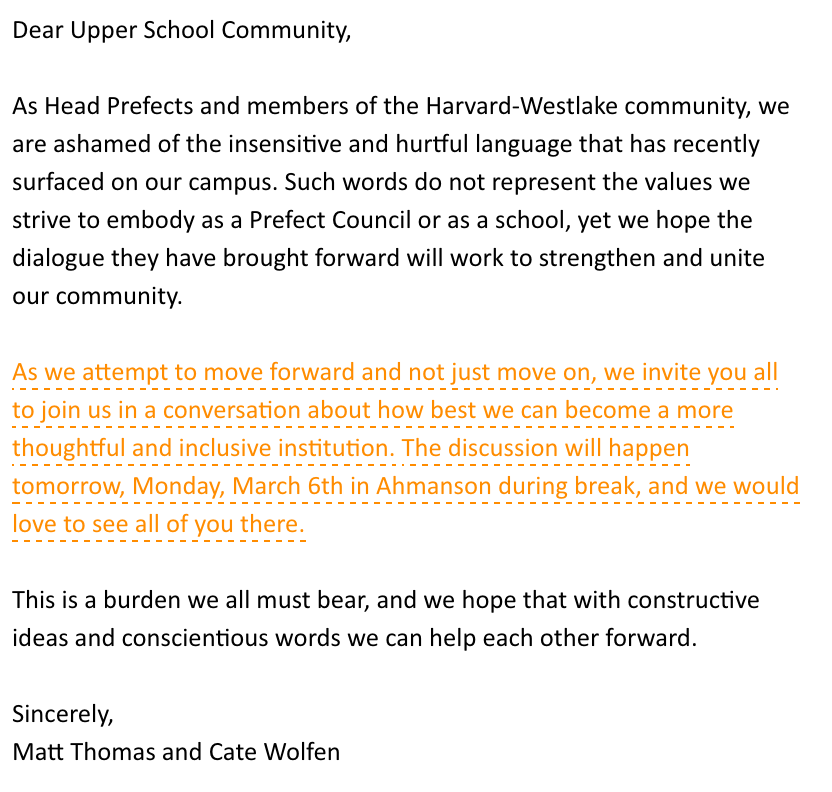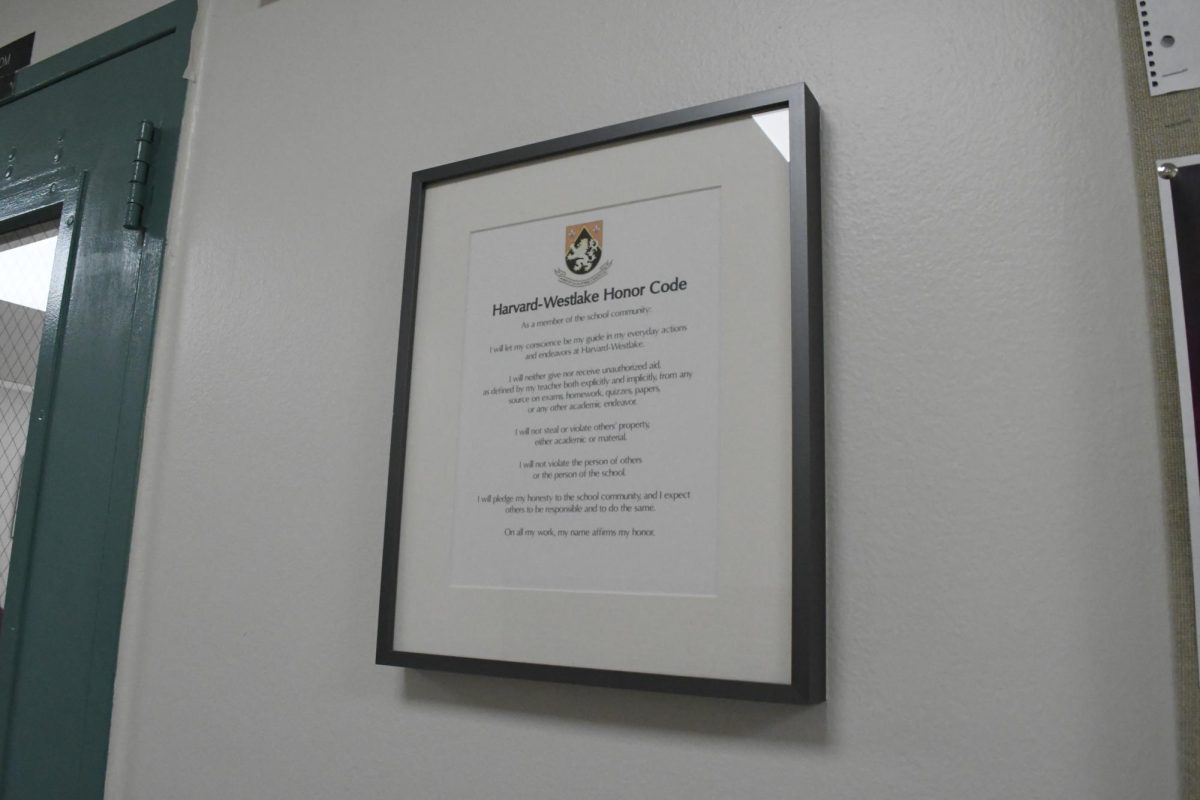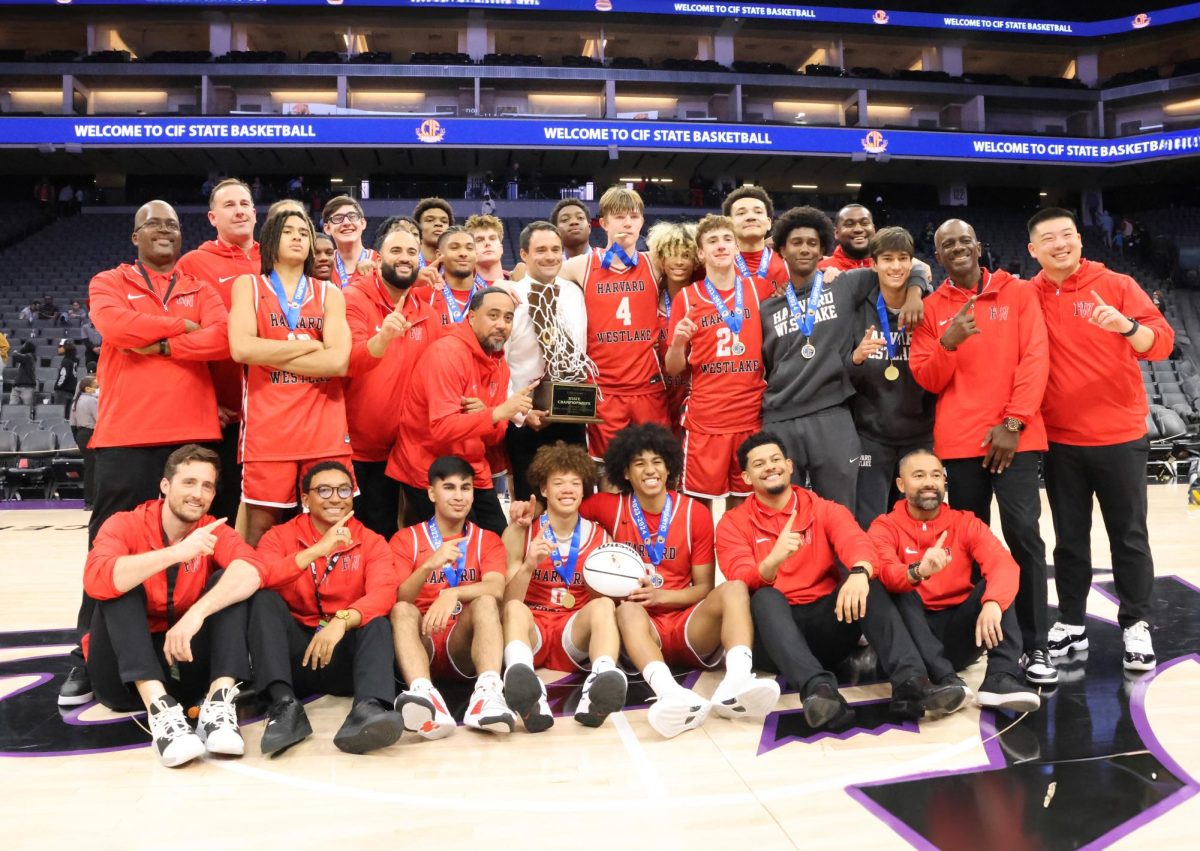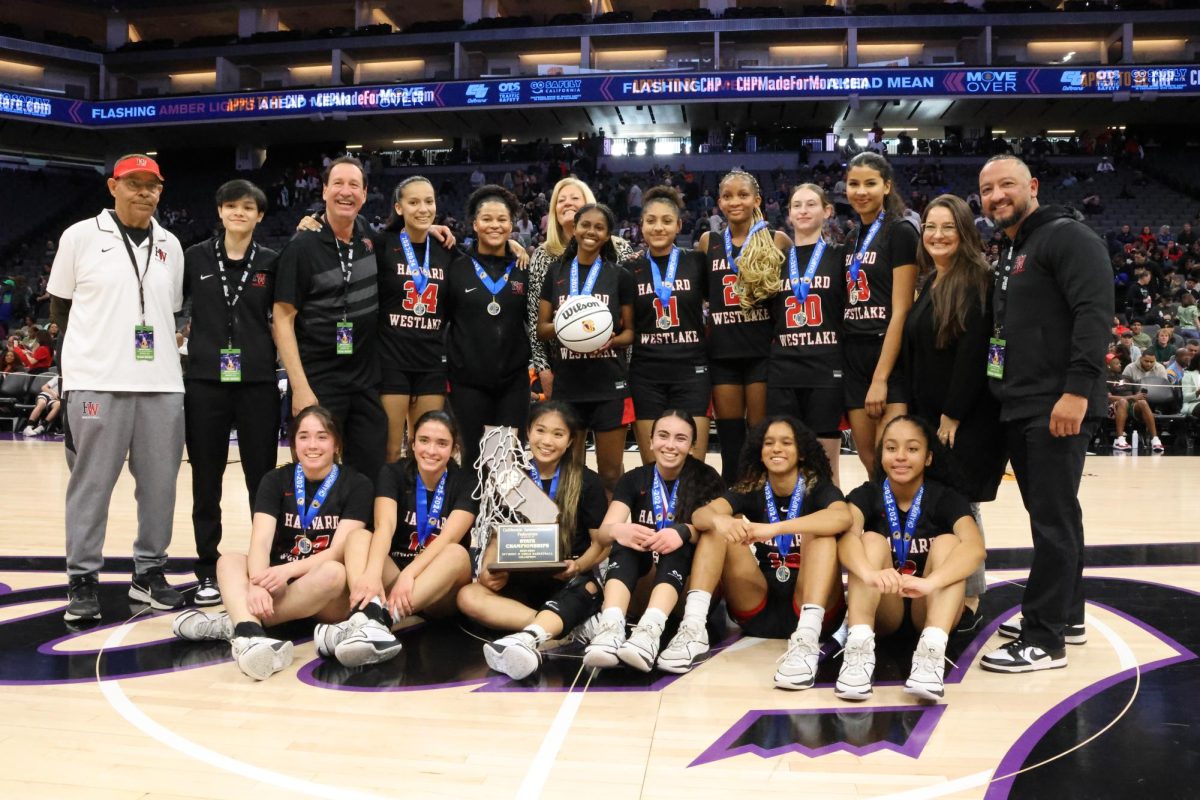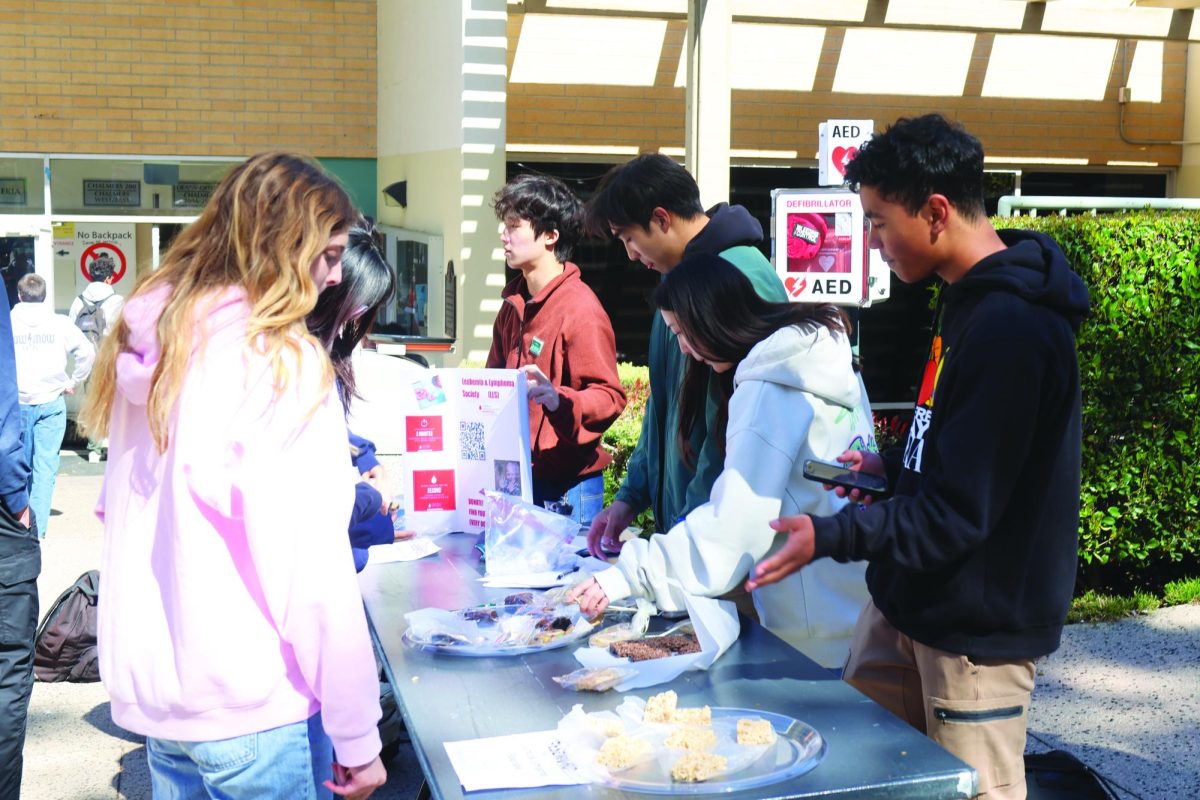Head Prefects Cate Wolfen ’17 and Matt Thomas ’17 welcomed student suggestions regarding an improvement in diversity and inclusivity at school on Monday during break.
After reports surfaced of students, one of whom was a prefect, using homophobic and racial slurs in social media posts, discussion on campus regarding the use of derogatory language sparked.
Members of Prefect Council, faculty and administrators attended the meeting, which was open to all students, to start a dialogue about how to become a more thoughtful and inclusive institution.
Students expressed their concern about the administration responding in a reactionary manner rather than taking proactive steps to ensure this kind of incident never occurs in the first place.
After a video surfaced last May of some white students from Brentwood School singing a rap song that included the n-word, 91 percent of students who responded to a Chronicle poll at the time said that they believed something like this could happen at Harvard-Westlake. Commons first addressed Harvard-Westlake’s similar issue on Feb. 17.
“I feel like the takeaway from the administration is ‘Don’t do this. Don’t be public,’” Audrey Kotick ’17 said. “I don’t think the administration has addressed why kids shouldn’t be allowed to say [the n-word] and why it hurts people emotionally and how people are affected by it. I think they’re just touching the surface and they don’t want to go below because they know there’s a much bigger problem.”
Jake Broder ’17 said the school was more concerned with preserving its public image than teaching the students why this language is offensive.
“It kind of sucks that we only have these discussions after something has gone wrong,” Broder said. “Specifically talking about social media, it definitely is different than saying [racial slurs] just with other people. It’s projected to a wider audience. But I think how the punishments are handled with the difference between something said on social media versus something that’s not said on social media is because the school tries to save itself.”
When a student asked if there was a formal speech code instituted on what words are or are not allowed to be said, Chaplain James Young, who advises the Honor Board, nor any other faculty or administrator present was able to speak specifically on the matter, but said in his experience any speech that was hurtful to others was considered punishable.
According to the Upper School Student and Parent Handbook, absolute respect for the rights of others is expected of all school members, and violations of these expectations may result in expulsion. The Handbook prohibits profanity or socially offensive language and verbal abuse on campus.
Because a member of Prefect Council was involved in the controversy, attendees also asked the Head Prefects to further explain the election process for electing members to the Council. With Head Prefect elections for the juniors coming up on March 23, Wolfen described a new addition to the process.
“This year all candidates will be reviewed by a small administrative committee to ensure that anyone who is eligible to be Head Prefect or Prefect embodies the values of the mission statement,” Wolfen said. “It’s really important to us that anyone who is elected to this position is held to a higher standard.”
While Head Prefects and faculty did not specify the details of the administrative committee because it has yet to be put into action, Young said members of the committee will likely look at the social media presence, prior Honor Board offenses and prior discipline run-ins of the candidates.
Students also made suggestions to diversify the curriculum to include more about the history and discrimination of minorities, such as African Americans and members of the LGBTQ community.
“Some of the black students feel like they know more about the history of the n-word than the teachers do, and that in it of itself is a problem,” Black Leadership, Awareness and Culture Club leader Anya Andrews ’17 said. “It shouldn’t be our responsibility to teach other students.”
After students expressed their disappointment in the removal of Huckleberry Finn from the sophomore English curriculum, Interim Head of Upper School Liz Resnick said that she does not oversee the creation of the curriculum.
“Departments make [the curriculum] and teams make it,” Resnick said. “I have to be in conversation with department chairs and team leaders to diversify the curriculum, but those decisions are not made in a central office.”
Besides the curriculum, Jillian Sanders ’17 said she wants to see casual use of offensive language end on campus.
“I feel like every day we hear our friends and our colleagues say derogatory or hurtful things to each other, and we don’t say anything about it and completely let it fly,” Sanders said. “Even if the person doesn’t mean it in a hurtful way, we’re not dumb. We go to Harvard-Westlake and we know these are derogatory terms, regardless of if they are meant in a hurtful way.”



































